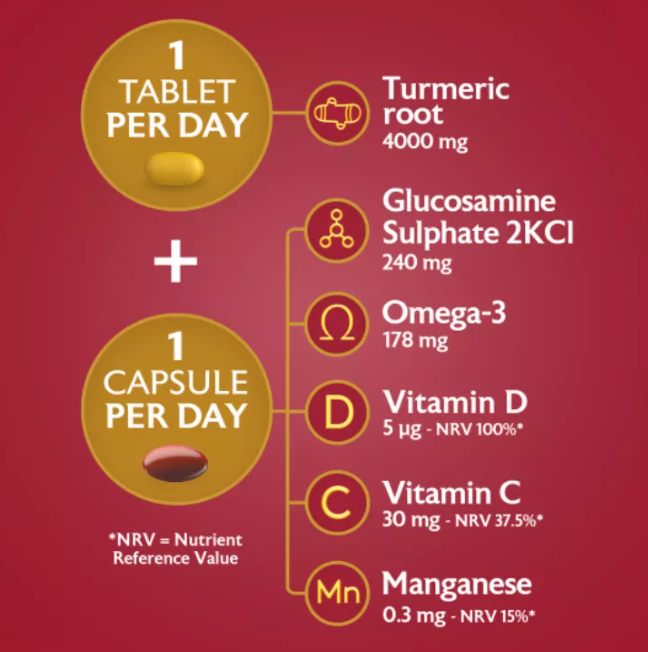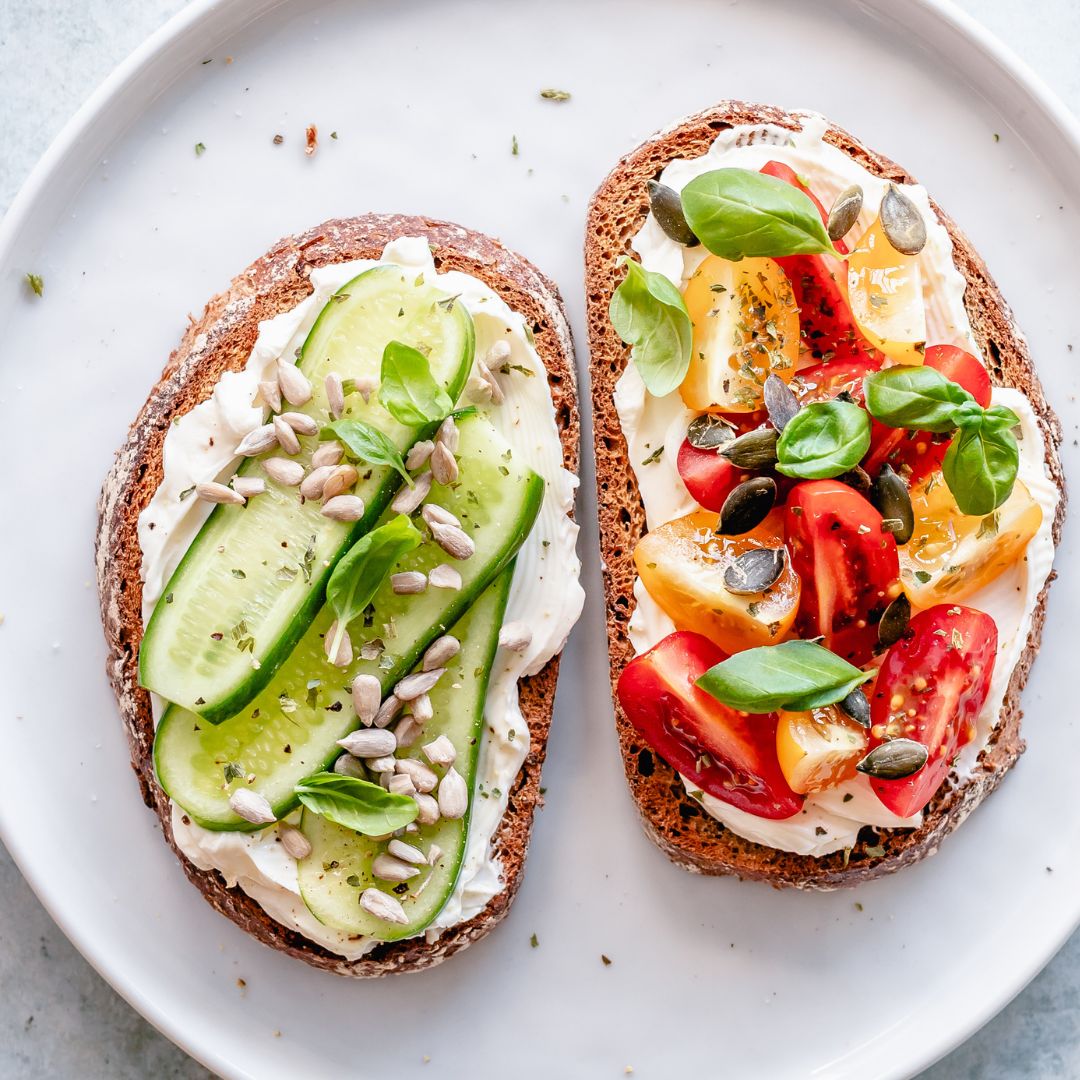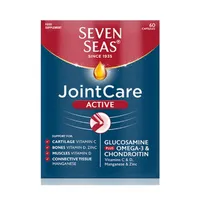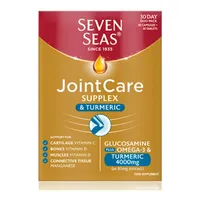These are the 5 simplest ways to boost both your physical and mental health, according to research
In partnership with Seven Seas.

In partnership with Seven Seas.
We all know what we need to do to stay healthy these days: hit our 10,000 steps, eat at least five pieces of fruit and veg, and drink two litres of water - and so on, and so forth. But what other simple steps can we be taking day-to-day to boost our wellbeing?
Sometimes the headlines are confusing - some reports conflict, telling us red wine is good for us, only to announce a week later that it’s not-so-great for us after all. Should we cut out fat or eat fat? Eschew dairy or glug it with every meal? Eat meat? Skip fish? Three cups of coffee or none?
It can be a veritable minefield out there - which is why we’ve scoured the latest research and studies to bring you five simple-to-incorporate health hacks. Keep scrolling.
5 of the simplest ways to boost your health, according to science
1. Hydrate, hydrate, hydrate
Ok, you’ve likely heard this one before, but there’s a reason for that, right? Fun fact: human beings are 60 per cent water. That’s right: we’re basically a walking puddle. That’s why, if you don’t drink enough, your body will likely start working less efficiently (not to mention you’ll likely feel thirsty on the reg).
So why is water so important? Well, according to the scientists, you need water for your blood to flow correctly, to carry essential oxygen, glucose and nutrients around the body, to keep your kidneys functioning properly, to help keep your eyes and joints lubricated, and to keep your digestive system regular.
But how much do you really need? Well, science shows that a healthy adult needs 1.5 to two litres a day. That equates to around eight to ten glasses a day - but this does include hot drinks and the water that is in your food.
Marie Claire Health Editor Ally Head shares:
“Making an active effort to up my water intake has made a noticeable difference to my skin, hair, nails, and digestion, too. Doing simple things, like giving yourself visual cues - I’m never without my water bottle - means you’re less likely to forget.”
Do note here, though: coffee and tea are mild diuretics, meaning they can make you lose water and potentially dehydrate you. The best indicator of good hydration is urine colour: pale yellow is the optimum shade, whereas anything darker than that suggests you need more fluid.

2. Boost your nutrition
Hands up if you’ve ever tried a fad diet, counted your calories, or grabbed far too many a convenient meal on the go as a result of a busy and demanding work-life balance?
You're not alone - but according to experts, the most important part of good food hygiene is balance, moderation and variety. The NHS top tips for healthy eating include basing your meals on high fibre and starchy carbohydrates, eating lots of fresh fruit and veg, eating more fish (including a portion of oily fish each week), and cutting down on saturated fat and sugar and salt.
So why is little and often, everything in moderation, and a bit of everything better than cutting whole food groups out?
Well, experts agree that eating everything in moderation is far better in the long term than strict dieting because when you haven’t eaten in a while the hormone ghrelin kicks, in making you feel hungry and crave food. The hormone leptin helps to suppress hunger, yet when you lose weight your body produces less leptin, meaning you are less likely to feel full and want to continue grazing. As per this 2019 study, leptin also affects metabolism, so the less leptin you have the slower you metabolise food, meaning you have to eat less to maintain the weight you are.
Long story short: good nutrition is key. Aim to eat moderate amounts of everything, focus on high fibre, fresh fruit and veg, increase your fish intake and cut down on saturated fats and sugar. Simple.
3. Move more
We all have days when we’d rather sit on the sofa and eat a bar of chocolate - even our Health Ed Ally Head, who’s run ultra-marathons and more, sometimes lacks exercise motivation - but moving mindfully where possible will do both your mind and body more good.
How so? Exercise improves heart health and insulin sensitivity and helps to slow bone wastage, according to various research. Data shows it’s also amazing for your brain - even just going for a brisk walk every day relieves stress by helping to increase your serotonin levels.
According to the NHS, you should aim for at least 150 minutes of moderate-intensity activity a week or 75 minutes of vigorous-intensity activity a week.
Ready? Set? Sweat.

4. Protect your mental health
Health and wellness isn’t just isolated to the body - far from it. Maintaining good mental health is just as important as hitting that 6am HIIT class. Stress and high cortisol levels have been shown to suppress the immune system, upset your digestive system, disrupt sex hormones, increase the risk of stroke (see this 2005 study), and increase the risk of heart attacks.
Some studies even suggest it may accelerate the ageing process - which, in short, isn’t good.
Don’t worry if you notice stress from time to time - we all live busy lives and the 24-hour online culture makes it near impossible to eliminate stress. That said, practicing daily mindfulness, meditation and calming exercises like yoga or Qi Gong can help to boost your mood.
5. Supplement
Last but not least, supplementation is one of the simplest ways to support your general health and something Health Editor Ally Head has done for years.
“Sure, it can feel a little overwhelming knowing where to start and supplements aren’t for everyone, but I feel so much less fatigued when I supplement magnesium, and I also take vitamin D throughout the winter (3). Do speak to a qualified expert, if you haven’t tried supplements before, though.”
So, why supplement? Because sometimes you can struggle to eat as you should and need a little extra support to keep everything whirring away as it should. Seven Seas JointCare product range is formulated to include Omega-3 which is important for overall health, supporting three major organs in the body: the heart, brain and eyes (1). Seven Seas Joint Care range also contains vitamin D to contribute to the maintenance of normal bones and muscle function (1).
Seven Seas Jointcare Active - £10.80 for 60 capsules
Seven Seas Jointcare Supplex & Turmeric - £12.66 for 30 capsules
As with all supplements, always speak to a doctor before starting anything new.
1. Seven Seas JointCare Supplements contain: Vitamin D which supports normal functioning muscles and normal bones. Vitamin C for the normal formation of collagen for the normal function of cartilage. Manganese for the normal formation of connective tissues or Copper contributes to maintenance of normal connective tissues.
2. A daily intake of 250mg EPA (Eicosapentaenoic Acid) and DHA (Docosahexaenoic Acid) helps support normal heart function. 250mg DHA daily helps support normal vision and brain function.
3. Protein contributes to the growth and maintenance of muscle mass.
Food supplements must not replace a varied, balanced diet and a healthy lifestyle.
Celebrity news, beauty, fashion advice, and fascinating features, delivered straight to your inbox!
Juliana Piskorz is a freelance journalist and broadcaster. Over the course of her career she has written for a smorgasbord of magazines and national newspapers including The Sunday Times, Dazed and Confused, the Independent, the Guardian, Refinery29 and The Face among others.
Before going freelance, Juliana was the Digital Editor at the Evening Standard Magazine and a Staff Writer at the Observer Magazine.
Juliana has a partcular interest in art, fashion, travel and the pop culture.
-
 These are officially the best foods you can eat before a flight, according to two top nutritionists
These are officially the best foods you can eat before a flight, according to two top nutritionistsFor energy, mood, and more.
-
 This is what you should be eating before working out for energy and gains, according to a top nutritionist
This is what you should be eating before working out for energy and gains, according to a top nutritionistPlus, how the England squad are fuelling their success this World Cup.
-
 How to manage skin changes during perimenopause and menopause, according to an expert
How to manage skin changes during perimenopause and menopause, according to an expertIn partnership with Vichy
-
 5 easy ways to eat a more plant-based diet, according to chef Bettina Campolucci Bordi
5 easy ways to eat a more plant-based diet, according to chef Bettina Campolucci Bordi -
 Give your home a new season glow-up with the latest autumn-winter collection from M&S
Give your home a new season glow-up with the latest autumn-winter collection from M&SPromotional feature with M&S
-
 Here's how to maintain a pristine outdoor space
Here's how to maintain a pristine outdoor spaceIn partnership with Kärcher
-
 5 eco-conscious questions to ask yourself before buying something new
5 eco-conscious questions to ask yourself before buying something new -
 How I want to help elevate the profile of women in cycling
How I want to help elevate the profile of women in cyclingKeira McVitty on recovering from illness, YouTube and why cycling is a sport that keeps on giving






